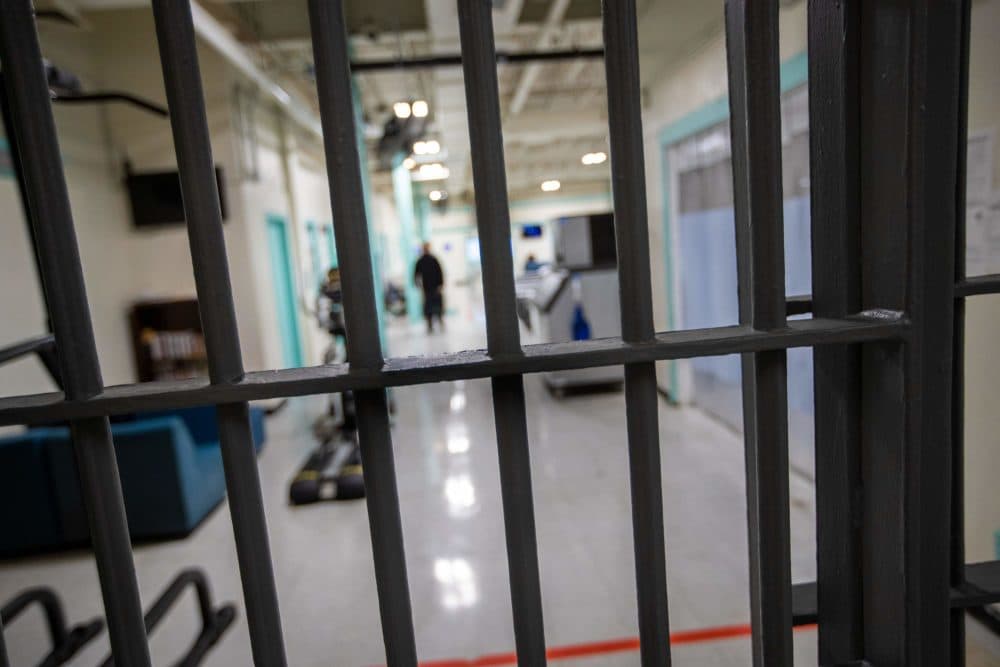Advertisement
Commentary
Time In Prison Shouldn't Be A Death Sentence

The argument for “decarcerating” our prisons and jails to the largest extent possible is simple: those whose actions caused them to be incarcerated in Massachusetts have been sentenced to time in prison, not the death penalty.
As a prison chaplain, I’ve been pondering deeply on how we as a society, facing an unconscionable dilemma with incarcerated men and women who face possible infection of COVID-19, create space where life is given deference over mere containment?
Our humanity as an American democracy makes a claim on our collective conscience that must not be ignored.
Prison is a necessary entity in any civilized society. People need time to sit with the anguish and regret of their crimes. But prison should not be a death sentence, as it most certainly will be for many men and women if we do not act decisively.
Correctional officers serving on the front lines are also at great risk. For the three inmates who have already passed away behind bars from COVID-19, I can only offer condolences and prayers that we get this right before time is no longer on our side.
... prison should not be a death sentence, as it most certainly will be for many men and women if we do not act decisively.
Those who believe the security and containment of our prisons and jails will insulate the inmates from the coronavirus are playing a dangerous game. Wishful thinking that these men and women will experience only mild symptoms is reckless and inhumane.
Before the pandemic, prisoners generally exhibited greater incidence of health issues such as heart disease, diabetes, high blood pressure and asthma. In these times, these conditions heighten the fatality risk of held people. Once infection rates rise, prison and jail populations will begin to overcrowd their medical facilities and those in nearby hospitals. As staff rates of infection reach a certain threshold, fewer and fewer workers will be available to manage the catastrophe.
No matter where you stand on criminal justice reform, the public health impact and human disaster that may ensue if swift action is not taken is undeniable and morally unacceptable.
So what are our state’s leaders doing about it?
Rep. Lindsay N. Sabadosa has introduced House bill HD.4963 that outlines specific categories of prisoners who should be immediately released. It's a laudable effort, but consensus in both houses of our Legislature is unlikely to be achieved quickly enough.
Two public defender organizations filed an emergency petition in the Supreme Judicial Court (SJC) for emergency action, and the SJC ruled that people being held on bail must be released immediately if they pose no danger and are likely to return for trial. District attorneys in six Massachusetts counties have begun reviewing cases for early release, but their efficacy will be limited without the cooperation of sheriffs who manage their county jails, and many of whom oppose this action.
Governor Baker can make a difference. With his authority to grant clemency, the governor can reduce or eliminate the threat of illness and death for thousands of prisoners and corrections officers with the stroke of the pen.
He could immediately release those prisoners who do not pose a danger to public safety who are being held under pre-trial detention, those most at risk to the coronavirus, those nearing the end of their sentence and eligible for parole, those who are detained on technical parole violations and those who simply could not make bail.
We must move rapidly to safeguard lives, and do so by taking the extraordinary step of clemency in cases where further danger is not expected.
This week, more than 70 faith-based organizations, members and friends of the Greater Boston Interfaith Organization, have signed a letter requesting that Governor Baker consider releasing as many prisoners as possible.
People will ask: what happens to the men and women granted clemency after the pandemic subsides? This isn't going to be over for many months, if not years.
Those sentenced to serve six months or less, would be released soon regardless. We want to ensure that their lives are preserved. For the others, clemency corrects the over-incarceration that has been practiced in Massachusetts for decades. But most importantly, the prisoners for whom we are advocating release are not a danger to society and are unlikely to commit further crimes. Further, their release contributes to safeguarding the lives of correctional officers, their families, their communities and hospitals.
While we appreciate the proposed legislation, now is a time for swift decisive action — not public debate. These are extraordinary times. We must move rapidly to safeguard lives, and do so by taking the extraordinary step of clemency in cases where further danger is not expected.
Our fragile democracy only endures because we Americans have consistently bent toward a universal moral law in making decisions that affect human lives. I pray that it is not too late to demonstrate courage and leadership in this unprecedented time.
